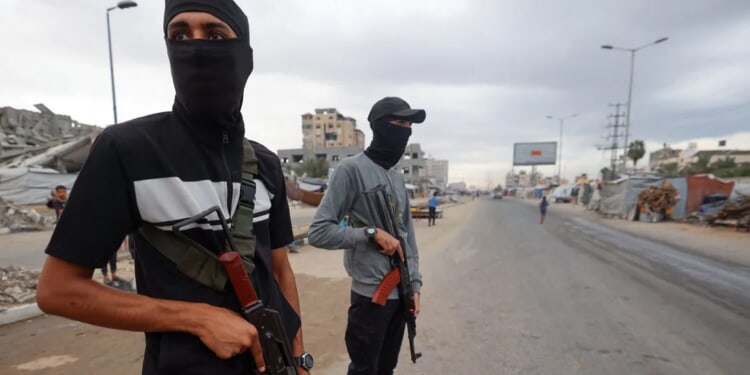Hamas fighters battled rival Palestinian groups and beat suspected Israeli collaborators within hours of agreeing to a ceasefire that ended the two-year conflict in Gaza.
The militant group set up checkpoints across the strip and engaged in gun battles with rivals who had received weapons from the Israeli military, according to Gazans interviewed by the Financial Times. Armed men in masks searched cars for weapons in Gaza City.
Hamas demanded that all rivals surrender their weapons within 48 hours. Popular Forces, the largest rival militia run by Yasser Abu Shabab, refused to comply and said it would continue defending its territory around Rafah. (RELATED: Hamas Says It Will Release Hostages One Day Early)
“We have no intention of leaving the Gaza Strip,” the militia said on social media.
BREAKING: Hamas militias are attacking the Dughmush clan, one of Gaza City’s largest families.
According to Mohamed Dughmush, Hamas is killing any man bearing the family name — not just fighters.
Where is the media? pic.twitter.com/JDM3YRtUbs
— Eyal Yakoby (@EYakoby) October 12, 2025
The violence surprised many Gazans who expected Hamas to be weakened after Israel’s offensive. Hamas said it would take over “enhancing security and stability and protecting citizens’ rights.”
Hamas security forces arrested collaborators and informants in Gaza City after saying they proved those people spied for Israel and participated in assassinating resistance members, according to the Palestinian Home Front, a Hamas-affiliated Telegram channel. A video distributed by Hamas channels showed an alleged collaborator being beaten, CNN reported.
At least 27 people died in fierce clashes between Hamas security forces and armed members of the Dughmush family near the Jordanian hospital in southern Gaza City, according to BBC. Eight Hamas fighters and 19 Dughmush clan members were killed, according to local medical sources.
More than 300 Hamas fighters stormed a residential block where Dughmush gunmen were positioned, the BBC reported eyewitnesses as saying. One resident described the chaos: “This time people weren’t fleeing Israeli attacks. They were running from their own people.”

















